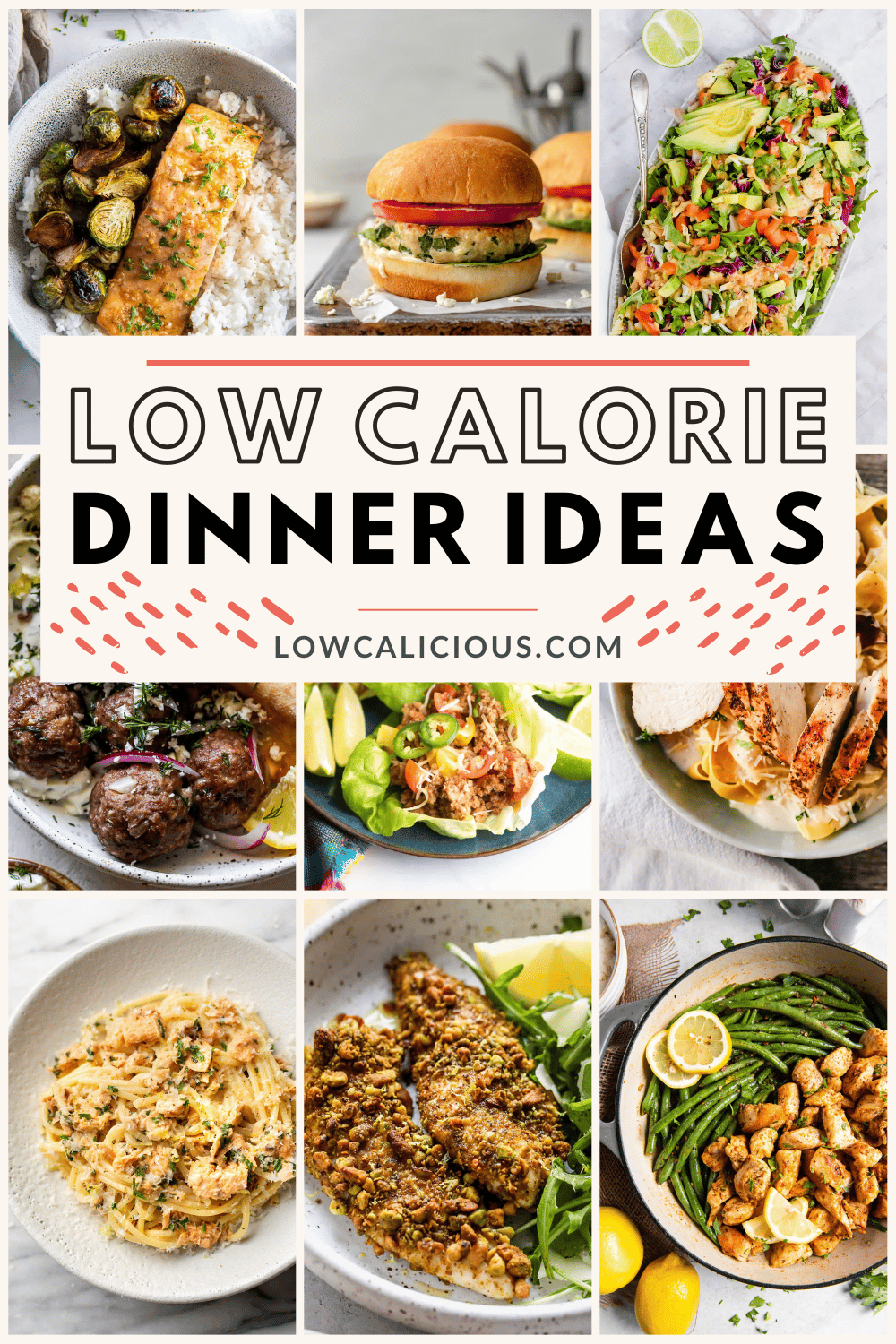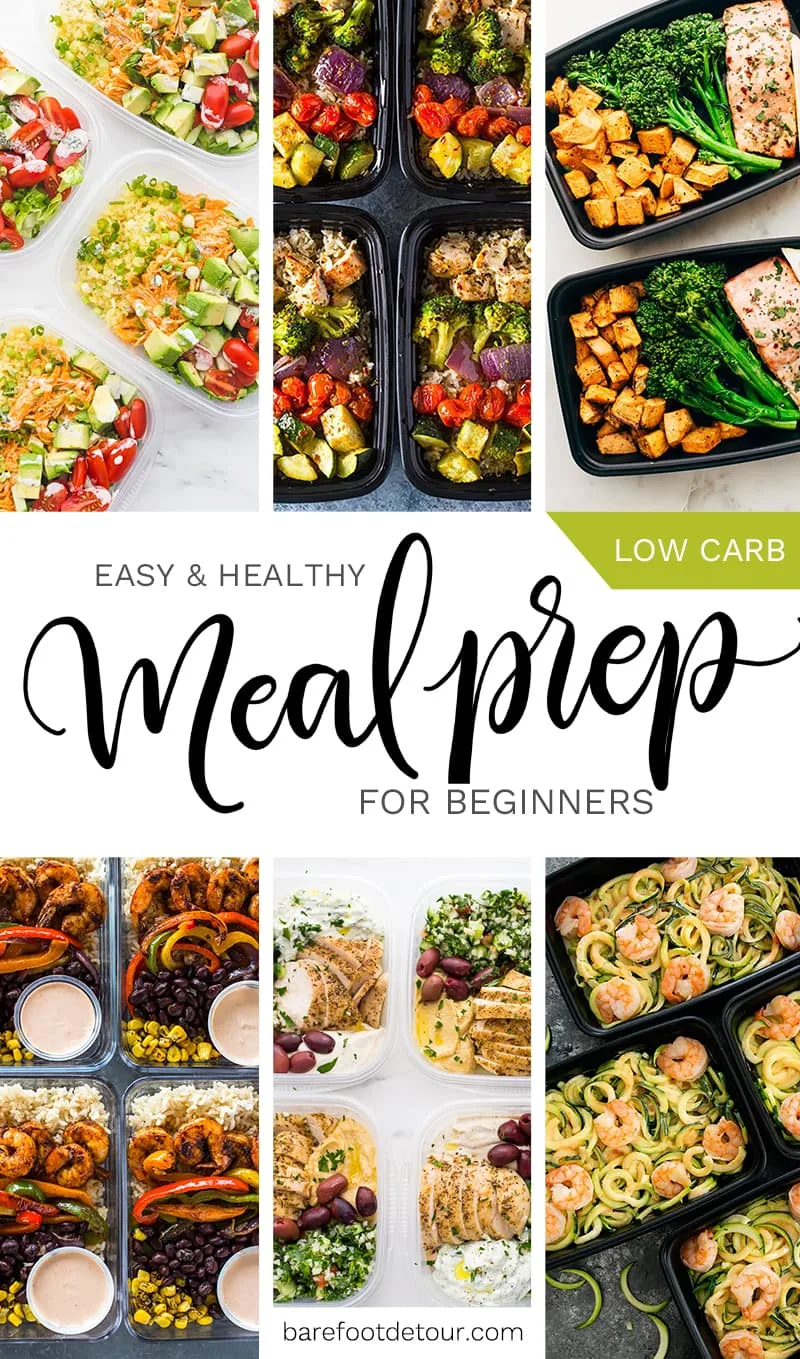
Introduction

High-protein foods are essential for good nutrition since they help maintain the health of our muscles and power our bodies. Including high-protein, healthful foods in your meals can transform your diet, whether you want to gain muscle, reduce weight, or just feel full all day. Thankfully, there’s no shortage of delectable and nourishing choices. In this article, we’ll look at five simple, high-protein meal ideas you may include in your diet.
Why High Protein is Important?

Before we get into our top five food choices, it’s crucial to understand why protein is so important. The body needs three macronutrients to function properly: protein, carbs, and fats. It promotes muscle healing, immunological function, and enzyme and hormone production. Furthermore, studies have indicated that high-protein diets help with weight loss by increasing satiety and decreasing appetite.
1. Eggs: The Perfect Protein Powerhouse

Eggs are an incredibly versatile and nutrient-dense food. Each large egg contains about 6 grams of protein, making it an excellent choice for any meal.
Benefits of Eggs:
- They are rich in essential amino acids, which are the building blocks of protein.
- Packed with vitamins like B12, which is great for brain health.
- Eggs also contain good fats that support heart health.
How to Incorporate Eggs:
There are many different ways to consume eggs, including scrambled, poached, boiled, or omelets. Consider an egg and veggie scramble for a high-protein breakfast or hard-boiled eggs for a quick snack. Do you want to go a step further? A wonderful, well-balanced meal may be made by adding avocado and egg to whole-grain toast.
2. Greek Yogurt: Creamy and Protein-Rich
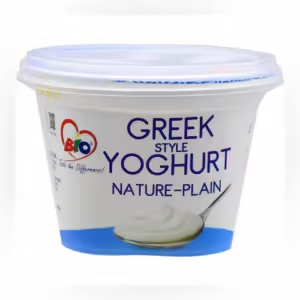
Greek yogurt is another high-protein staple that’s ideal for breakfast, snacks, or even dessert. A single serving (about 6 oz) of plain, non-fat Greek yogurt typically contains around 15-20 grams of protein.
Benefits of Greek Yogurt:
- It’s packed with probiotics, which support gut health.
- Lower in sugar than traditional yogurt.
- High in calcium, promoting strong bones.
How to Incorporate Greek Yogurt:
You may eat it on its own or with fresh fruits, nuts, and a drizzle of honey for extra flavor and nutrition. Greek yogurt can also be used as a foundation for smoothies, a creamy salad dressing, or a healthier substitute for sour cream in savory meals.
3. Chicken Breast: Lean and Loaded with Protein
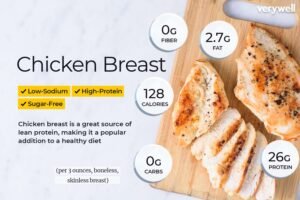
Chicken breast is a classic go-to for those looking to up their protein intake without consuming too much fat. A 3-ounce serving of skinless, cooked chicken breast provides about 26 grams of protein, making it one of the richest protein sources available.
Benefits of Chicken Breast:
- It’s low in fat and high in essential nutrients like B vitamins and selenium.
- Chicken breast is extremely versatile and easy to cook.
- It’s affordable and accessible.
How to Incorporate Chicken Breast:
There are numerous methods to prepare chicken breasts. Grill, roast, or stir-fry it and serve with steamed veggies or a nutritious grain such as quinoa for a filling dinner. You can also shred it and mix it into salads, or use it as a filler in wraps or tacos. To enhance taste without adding calories, marinate the chicken in herbs and spices before cooking.
4. Lentils: A Plant-Based Protein Punch
For those following a vegetarian or vegan diet, lentils are a fantastic source of protein. One cup of cooked lentils contains roughly 18 grams of protein. They are also packed with fiber, which helps keep you feeling full and aids in digestion.
Benefits of Lentils:
- They’re an excellent source of plant-based protein.
- Lentils are high in fiber, which supports gut health and regulates blood sugar.
- They’re rich in iron, magnesium, and folate, all of which are essential for overall health.
How to Incorporate Lentils:
Lentils can be added to soups, stews, and salads to provide protein. You may also make a robust lentil dish or use lentils as a foundation for vegetarian burgers. For a quick meal, combine cooked lentils, chopped vegetables, and a mild vinaigrette.
5. Almonds: A Crunchy Protein Snack
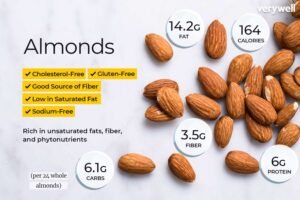
Almonds are a convenient, protein-rich snack option that you can take on the go. A one-ounce serving of almonds (about 23 almonds) contains approximately 6 grams of protein, along with healthy fats, fiber, and a range of important vitamins and minerals.
Benefits of Almonds:
- They’re high in vitamin E, which supports skin health.
- Almonds provide a good balance of protein and heart-healthy fats.
- They are an easy, portable snack.
How to Incorporate Almonds:
Almonds can be eaten alone as a snack or mixed into your morning porridge or yogurt for some crunch. You may also incorporate almonds into smoothies or use almond butter as a protein-rich spread on whole-grain bread. For an extra special treat, try roasted almonds sprinkled with sea salt or cinnamon.
CLICK HERE FOR MORE INFORMATION
Conclusion
Including foods high in protein in your diet doesn’t have to be hard or monotonous. There’s enough variety to keep your meals pleasant, engaging, and well-balanced, with alternatives including eggs, Greek yogurt, chicken breast, lentils, and almonds. Keep in mind that everyone who wishes to maintain their health, grow muscle, and feel satisfied and energized throughout the day needs protein—not just bodybuilders.
You may significantly enhance your general health and wellness by implementing little adjustments to your daily routine to include more of these meals high in protein.
FAQs
- Can I get enough protein from plant-based sources?
Yes! Foods like lentils, chickpeas, tofu, and quinoa are all excellent plant-based protein sources. Combining them with other plant foods can help you get all essential amino acids. - How much protein do I need daily?
The recommended daily intake varies, but generally, most adults need about 46-56 grams of protein per day, depending on factors like activity level and age. - Are eggs bad for cholesterol?
For most people, eating eggs in moderation (up to 1-2 a day) does not raise cholesterol levels significantly and provides a variety of health benefits. - Can Greek yogurt help with weight loss?
Yes! Greek yogurt is high in protein and can keep you full for longer, making it easier to reduce overall calorie intake.
5. Is protein important for weight loss?
Absolutely! High-protein foods can help reduce hunger and maintain muscle mass during weight-loss efforts, making them a key part of a healthy weight-loss diet.

